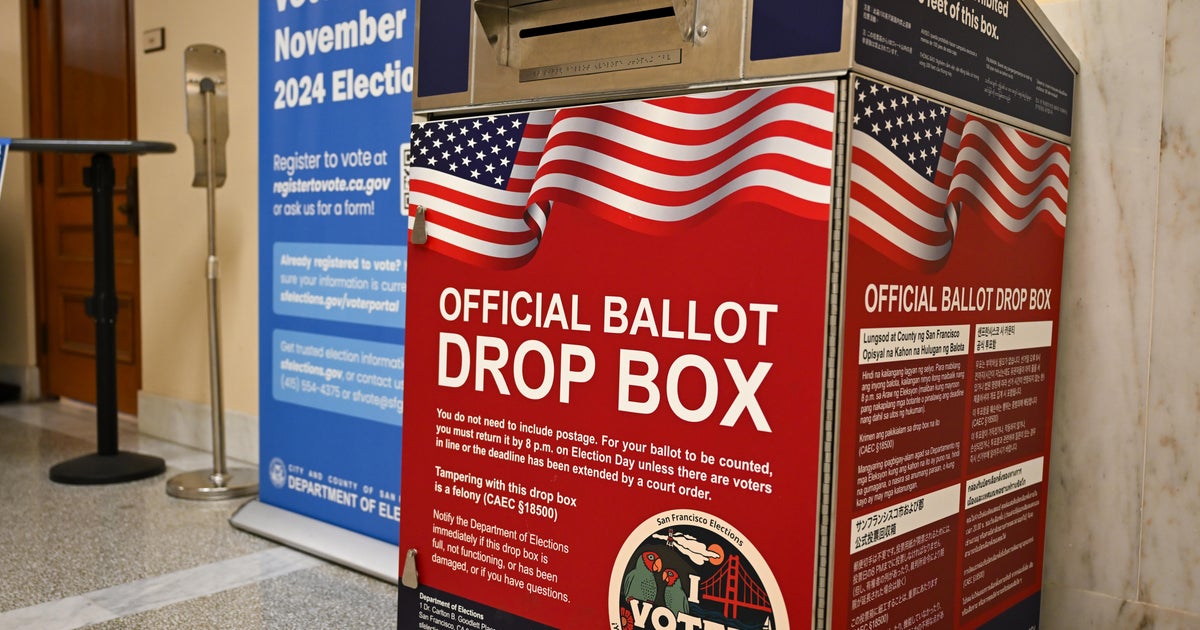Star Tribune
More Minnesota school staff, students train to combat teen overdoses

High school senior Jorge Vargas and his classmates practiced slowly filling syringes and pressing the plunger of a nostril spray device, pretending the tools were filled with overdose-reversing naloxone.
A growing number of Minnesota school officials — and now some students, too — are learning how to respond to opioid overdoses as teen deaths from the drugs have climbed in recent years.
“With the opioid epidemic it’s becoming more prevalent, especially amongst kids our age,” said Vargas, who suggested the naloxone training course to his teacher at Washington Technology Magnet School in St. Paul after hearing about a similar course at Minneapolis’ Roosevelt High School.
School districts and charter schools across the state must now keep a supply of naloxone, often known by the brand name Narcan. Legislators passed a law last year requiring each school building to be equipped with at least two doses of the lifesaving drug.
Officials with St. Paul Public Schools said they have administered naloxone twice since they started stocking it in schools last May. At two of Minnesota’s other largest school districts, Minneapolis and Anoka-Hennepin, staff said they have not yet needed to administer naloxone since the new requirement.
The most recent available CDC death data shows that 46 Minnesota teens ages 15 to 19 died of a drug overdose in 2021. That’s a sharp increase from fewer than 10 fatal teen overdoses in 2018.
It’s difficult to track how often the opioid crisis surfaces in school halls, with data on overdoses and drug use on school grounds not readily accessible.
But Minneapolis Public Schools noted that they had 134 disciplinary incidents involving illegal drugs last school year. In one incident this fall at Minneapolis South High School, a behavior report notes a bathroom “smelled like fentanyl” immediately after a student exited and says the student also had that smell the following day after leaving the restroom.
Districts across Minnesota raced to ensure some staff, like school nurses, were trained on how to use the overdose reversal drug ahead of the school year. The state doesn’t monitor which schools have naloxone or trained staff.
Minneapolis Public Schools trained school administrators and health office staff in August and also set up an online training that roughly 280 staff have completed so far, according to spokeswoman Mary Alice Rosko.
In St. Paul Public Schools, health and security staff have been trained on how to administer naloxone, spokeswoman Erica Wacker said. This month, she said, they will offer a virtual course for staff, who can choose to get naloxone to keep on hand once they complete the training. Some health classes are also adding opioid overdose and naloxone information to their curriculum, she noted.
Expanding that education to more students is critical, said Alicia House, executive director of the Steve Rummler Hope Network, which provides training and naloxone kits.
“Education, knowledge, awareness and hopefully resources to students would be the next step. There’s no reason why we should be withholding naloxone, testing supplies or education from students,” House said.
Fentanyl raises risk for teens
Colleen Ronnei, who leads the nonprofit Change the Outcome that does opioid education in schools, would also like to see naloxone on school buses and at athletics and other school-sponsored events. So far this school year, she has heard of three situations where naloxone was used in Minnesota schools.
There is a shift happening among some school administrators who used to resist Narcan training, fearing it would promote drug use, said Ingrid Johansen, M Health Fairview’s director of community clinical care. She said more people understand “this is just an important part of emergency response until we get on the other side of this epidemic.”
M Health Fairview and the Steve Rummler Hope Network have been training some high school students on how to respond to an overdose. Their next such session is in Princeton, about an hour north of the Twin Cities.
At Washington Technology Magnet School, about 120 students in the school’s introduction to medical careers classes received the naloxone training, said teacher Meagan O’Brien, who was learning about administering the drug alongside the students.
“This is touching all communities,” she said. “In the teen community there’s experimentation, and I worry about kids.”
The chance that other drugs could be laced with the powerful synthetic opioid fentanyl makes the stakes for experimentation much higher than they used to be, Johansen said.
“This dangerous fentanyl is so pervasive right now. Kids that have no idea what they are ingesting — it can take their life. So if someone happens to have a dose of rescue medicine in their backpack, that’s amazing and that can buy someone time to get help,” Johansen said, noting that during their seminar at Roosevelt High School, they gave every student who wanted one a nasal spray naloxone kit on their way out.
Schools add drug and alcohol counselors
Some school districts are also adding counselors to help students who are struggling with substance use or are affected by a family member or friend’s use.
St. Paul Public Schools started a partnership with the Wilder Foundation this year where a counselor, peer recovery specialist and three interns visit four of the district’s high schools. The Anoka-Hennepin School district added a second chemical health counselor at the start of last school year, while Minneapolis is expanding its ranks of licensed drug and alcohol counselors in schools where vaping is most common.
Last year, Josh Macomber was the lone licensed alcohol and drug counselor serving Minneapolis Public Schools.
“It was like trying to drink out of a firehouse,” he said. Even if the district added one worker like him in every high school and had a couple serving middle schools, he said they would still be busy.
“There’s a reason that the state decided to put Narcan in every school,” Macomber said. “And I think that, in and of itself, suggests that it is kind of a clear and present danger.”
Staff writer Mara Klecker contributed to this report.
Star Tribune
Sentencing set for Monday morning for a Minnesota man who was drunk and speeding when he hit a woman’s SUV and killed her.
A man with a history of driving drunk received a four-year term Monday for being intoxicated and speeding when he hit a woman’s SUV on a southern Minnesota highway and killed her.
John R. Deleo, 54, of Lake Crystal, Minn., was sentenced in Brown County District Court after pleading guilty to criminal vehicular homicide in connection with the crash on Aug. 17, 2023, in New Ulm at Hwy. 68 and S. 15th Street that killed 82-year-old Sharon A. Portner, of New Ulm.
With credit for the two days he was in jail after his arrest, Deleo is expected to serve the first 2⅔ years years of his term in prison and the balance on supervised release.
A week ahead of sentencing, defense attorney James Kuettner asked the court to spare his client prison and put him on probation for up to five years.
Kuettner pointed out in his filing that Deleo stayed at the crash scene and attempted “to aid Portner, and he left [her] side only when directed to by law enforcement.”
The attorney also noted that Deleo has been sober since the crash, and therefore, at a particularly low risk for reoffending.
According to the criminal complaint:
Police arrived to find the two damaged vehicles near 15th and S. Broadway streets. Emergency responders took Portner to New Ulm Medical Center, where she died that day.
Star Tribune
Fired Rochester-area trooper Shane Roper defense requests charges be dismissed
ROCHESTER – The defense for Shane Roper, the former state trooper charged for his role in a crash that killed Owatonna teenager Olivia Flores, has asked the court to dismiss eight of the nine charges against him.
In a motion filed Oct. 24, Roper’s attorneys said the state has “failed to meet its burden of offering direct evidence tending to demonstrate that [Roper’s] actions, or negligence, were the proximate cause of death or bodily harm.”
Roper, 32, faces nine criminal charges related to the May 18 crash, including felony charges of second-degree manslaughter and criminal vehicular homicide. Both charges carry maximum sentences of 10 years in jail.
The only charge the defense did not ask to have dismissed is a misdemeanor for careless driving, which carries a maximum sentence of 90 days in jail.
Among the other requests made to the court, Roper’s defense asked for a change of venue outside of Olmsted County, citing the extensive media coverage of the case. The defense said “jury pools have surely been tainted and a fair trial cannot be had” in the county.
Roper’s attorney, Eric Nelson of Halberg Criminal Defense, also argued that any evidence related to Roper’s prior speeding or traffic incidents should be precluded as evidence in the case.
In the five years leading up to the crash, Roper had been disciplined by the State Patrol on four separate occasions for careless or reckless driving, including a February 2019 crash that injured another officer.
District Judge Christa Daily has not responded to the motions. Roper is scheduled to be back in court Nov. 21 for a pretrial settlement conference.
Star Tribune
Who is comedian Tony Hinchcliffe, who insulted Puerto Rico at Trump’s Madison Square Garden rally?

NEW YORK — Of the nearly 30 speakers who recently warmed up the crowd for Donald Trump at Madison Square Garden, comedian Tony Hinchcliffe got the most attention for racist remarks.
”I don’t know if you guys know this, but there’s literally a floating island of garbage in the middle of the ocean right now. I think it’s called Puerto Rico,” he said, later including lewd and racist comments about Latinos, Jewish and Black people.
The comments have led to condemnation from Democrats and Puerto Rican celebrities, with Ricky Martin sharing a clip of Hinchcliffe’s set, captioned: “This is what they think of us.”
The Trump campaign took the rare step of distancing itself from Hinchcliffe. ”This joke does not reflect the views of President Trump or the campaign,” senior adviser Danielle Alvarez said in a statement.
Here’s what to know about Hinchcliffe, his comedic styling and the response to his Madision Square Garden comments.
Hinchcliffe, raised in Youngstown, Ohio, is a stand-up comedian who specializes in the roast style, in which comedians take the podium to needle a celebrity victim with personal and often tasteless jokes. He has written and appeared on eight Comedy Central Roasts, including ones for Snoop Dogg and Tom Brady.
Even fellow comedians aren’t immune. At the Snoop Dogg roast, Hichcliffe made a joke referencing comedian Luenell, who is Black, being on the Underground Railroad. Of the honoree, he said: ”Snoop, you look like the California Raisin that got hooked on heroin.”




